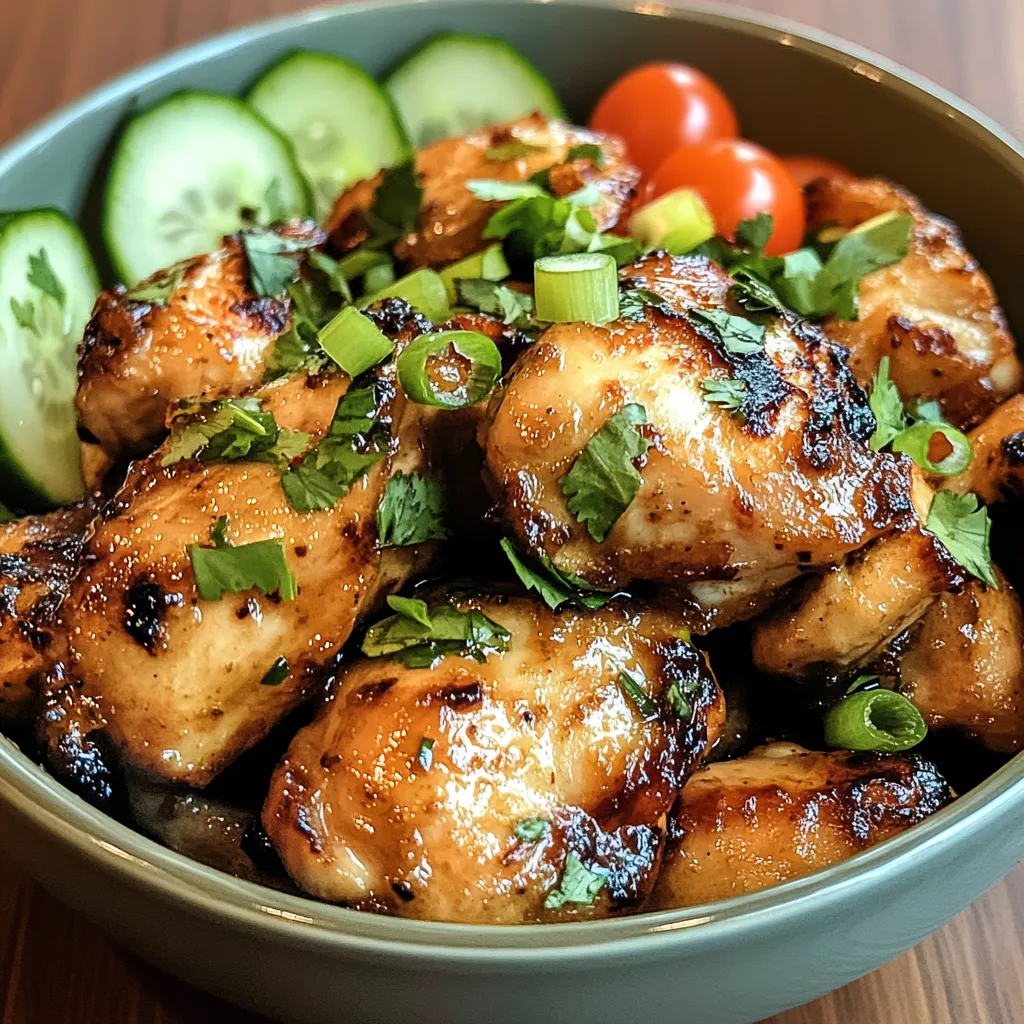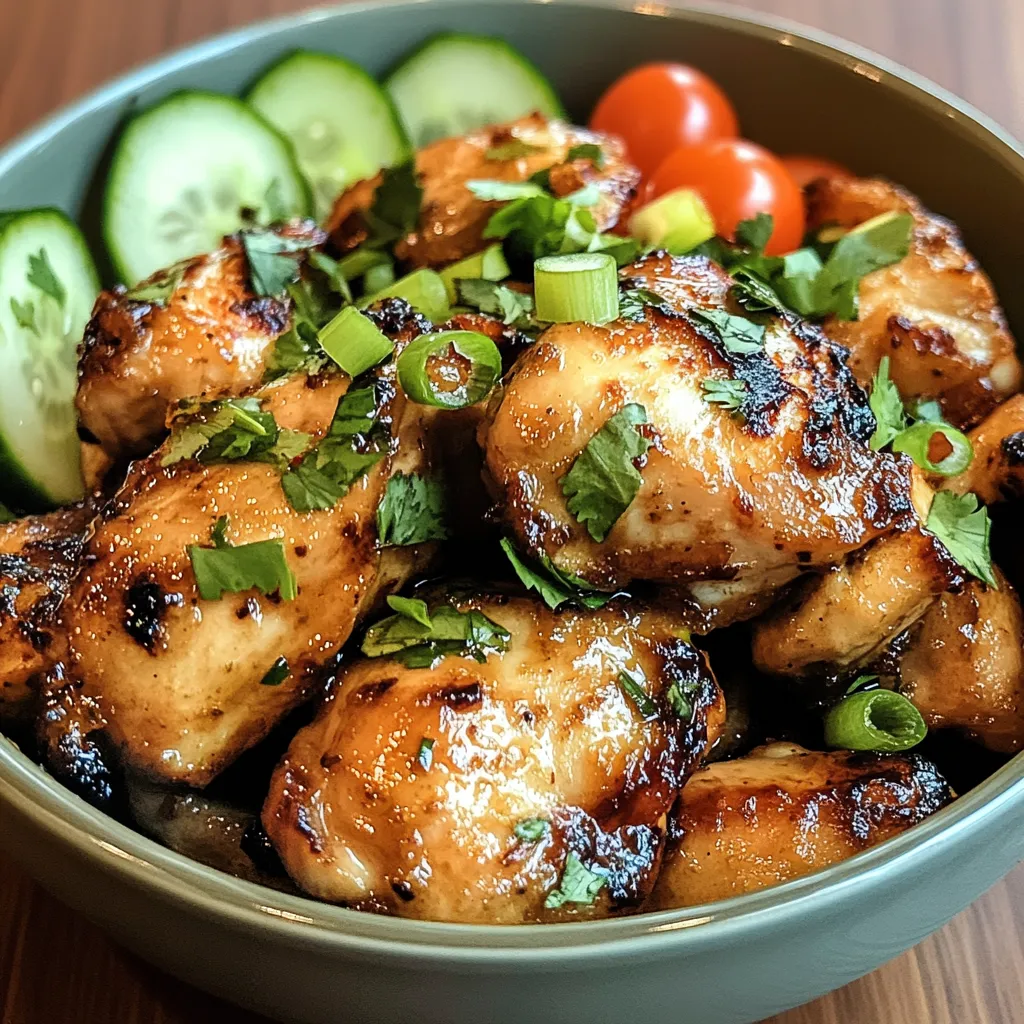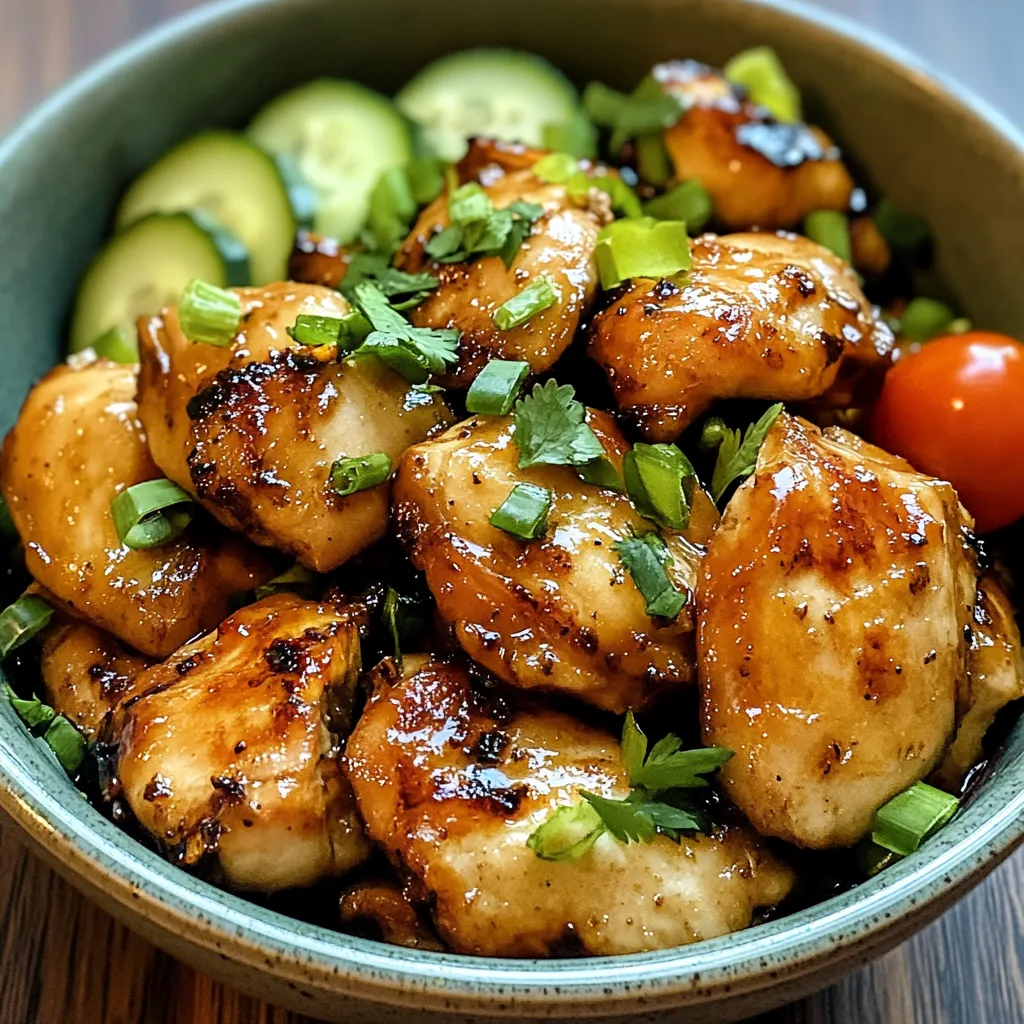 Save
Save
Vibrant, aromatic lemongrass infuses tender chicken with citrusy brightness in this Vietnamese classic that delivers restaurant-quality flavor with home kitchen simplicity. The magical combination of lemongrass, garlic, fish sauce, and turmeric creates layers of flavor that penetrate deep into the meat during marination. This dish strikes that perfect balance between savory, sweet, and tangy notes while offering a sensory experience that transports you straight to the bustling streets of Vietnam.
Last month when my sister visited from out of town, I prepared this lemongrass chicken for our family dinner. The moment I started cooking, the citrusy aroma filled the kitchen, drawing everyone in before the meal was even ready. Even my nephew, who typically approaches new foods with suspicion, asked for seconds and wanted to know when I would make it again.
Essential Flavor Elements
- Lemongrass: Fresh stalks provide the signature citrusy aroma that defines this dish. Select firm stalks with bulbous bases, removing tough outer layers to reveal the tender, pale inner core that contains intense flavor.
- Chicken Thighs: Boneless, skinless thighs offer superior flavor and moisture retention. Their higher fat content creates juicier results than breast meat while absorbing marinade more effectively.
- Fish Sauce: This traditional Vietnamese condiment contributes essential umami depth. Choose high-quality brands with transparent amber color and ingredients limited to fish, salt, and water for authentic flavor.
- Garlic: Fresh cloves provide aromatic foundation that permeates the entire dish. Mince finely to distribute evenly throughout the marinade, allowing maximum flavor infusion.
- Brown Sugar: Creates caramelization during cooking while balancing the savory fish sauce. Dark brown varieties contain more molasses, offering deeper complexity than white sugar alternatives.
- Turmeric: This golden spice contributes subtle earthy notes and vibrant color. Fresh turmeric root provides brighter flavor than dried, though powdered works perfectly in this recipe.
- Lime Juice: Fresh-squeezed juice adds essential acidity that tenderizes the chicken. The brightness cuts through rich flavors while enhancing the lemongrass notes throughout the dish.
- Soy Sauce: Contributes saltiness and color while adding another layer of umami. Low-sodium varieties allow better control of the overall salt level in your final dish.
- Chili Flakes: Optional heat element that can be adjusted to preference. Korean gochugaru offers subtle fruity notes alongside heat, creating more complexity than standard red pepper flakes.
Authentic Preparation
- Marinade Creation:
- Combine finely minced lemongrass, garlic, fish sauce, soy sauce, brown sugar, turmeric, lime juice, and chili flakes in a bowl, stirring until sugar completely dissolves. The marinade should have a harmonious balance of salty, sweet, and tangy notes with the distinctive citrus fragrance of lemongrass dominating.
- Flavor Infusion:
- Place chicken thighs in a shallow container or resealable bag, pouring marinade over all surfaces. Massage gently to ensure complete coverage before sealing and refrigerating. Allow at least one hour for basic flavor development, though overnight marination delivers significantly more complex results.
- Vegetable Preparation:
- While chicken marinates, thinly slice onion and julienne red bell pepper into uniform pieces for even cooking. The vegetables will soften and slightly caramelize during cooking, adding sweetness and textural contrast to complement the tender chicken.
- Aromatic Foundation:
- Heat vegetable oil in a large skillet or wok over medium-high heat until shimmering. Add prepared onions and bell peppers, sautéing until they begin to soften and develop light caramelization around the edges, approximately 3-4 minutes. Remove and reserve.
- Protein Perfection:
- Return the same pan to heat, adding additional oil if necessary. Place marinated chicken pieces in a single layer, allowing them to develop a golden crust before turning. Cook approximately 4-5 minutes per side until internal temperature reaches 165°F and exterior shows caramelized marinade.
- Resting Period:
- Transfer cooked chicken to a cutting board and allow to rest for 5 minutes before slicing. This critical step allows juices to redistribute throughout the meat, ensuring each piece remains perfectly moist and flavorful when served.
- Component Integration:
- Slice rested chicken into thin strips against the grain for maximum tenderness. Return sautéed vegetables to the pan, adding sliced chicken and tossing gently to combine. The residual heat warms all components while allowing flavors to meld beautifully.
- Final Enhancement:
- Drizzle with a touch of sesame oil if desired, then transfer to serving platter. Garnish generously with fresh cilantro leaves and surround with lime wedges that provide bright acidity when squeezed over individual portions just before eating.
 Save
Save
My grandmother taught me this recipe after learning it from her Vietnamese neighbor during the years they shared an apartment building courtyard garden. She always emphasized the importance of patience during marination, explaining that rushing this step would result in merely adequate chicken rather than the transformative experience this dish can provide. When preparing it now, I often think of her methodical approach to building flavor, taking time to properly mince the lemongrass until it practically melted into the marinade.
Serving Inspirations
This versatile chicken creates beautiful harmony with various accompaniments that showcase its complex flavors. Serve over fragrant jasmine rice that absorbs the savory juices while providing textural contrast. For lighter meals, offer butter lettuce leaves as wraps, allowing guests to create fresh bundles with chicken, herbs, and a drizzle of nuoc cham dipping sauce.
Flavorful Adaptations
This foundational recipe welcomes creative variations while maintaining its essential Vietnamese character. Transform the experience by adding coconut milk to the marinade for a richer, creamier profile with subtle tropical notes. For additional vegetable content, incorporate snap peas or thinly sliced carrots during the final cooking stage, adding color and nutritional value. Vegetarians might substitute extra-firm tofu, pressed and cubed, which absorbs the marinade beautifully while offering a different textural experience.
Keeping It Fresh
Store leftover lemongrass chicken in airtight containers in the refrigerator for up to three days, maintaining both flavor and food safety. The flavor often deepens overnight as ingredients continue to meld. Reheat gently in a skillet over medium heat with a small splash of water to restore moisture without overcooking. For meal prep convenience, freeze individual portions for up to two months, thawing overnight in the refrigerator before reheating.
 Save
Save
After years of perfecting this recipe through countless iterations, I've found this approach to Vietnamese lemongrass chicken creates the ideal balance between authentic flavor and home kitchen practicality. The combination of fragrant lemongrass, savory fish sauce, and perfectly cooked chicken delivers a meal that feels special enough for guests yet simple enough for weeknight cooking. Whether served traditionally with rice or reimagined as filling for fresh lettuce wraps, this dish consistently delivers the vibrant, aromatic experience that makes Vietnamese cuisine so beloved worldwide.
Common Questions About Cooking
- → Where can I find fresh lemongrass?
- Fresh lemongrass is available at Asian grocery stores, many well-stocked supermarkets in the produce section, or at farmers markets. If you can't find fresh, look for tubes of lemongrass paste in the herb section, which works as a good substitute.
- → How do I prepare lemongrass properly?
- Remove the tough outer layers of the lemongrass stalk. Use only the pale, softer bottom third of the stalk - about 4-5 inches from the root end. Slice it very thinly, then mince finely or pound in a mortar and pestle for the best flavor release.
- → Can I make this recipe without fish sauce?
- Yes, you can substitute fish sauce with soy sauce or coconut aminos for a vegetarian option. The flavor will be different but still delicious. For a similar umami flavor, you can also try using a mixture of soy sauce with a touch of lime juice.
- → How spicy is this dish?
- With 1 teaspoon of chili flakes, it has a mild to medium heat. You can adjust the spice level by reducing or increasing the amount of chili flakes, or omit them completely for a non-spicy version.
- → Can I grill this chicken instead of using a pan?
- Absolutely! This chicken works beautifully on the grill. Marinate as directed, then grill over medium-high heat for about 5-6 minutes per side, or until the internal temperature reaches 165°F (74°C).
